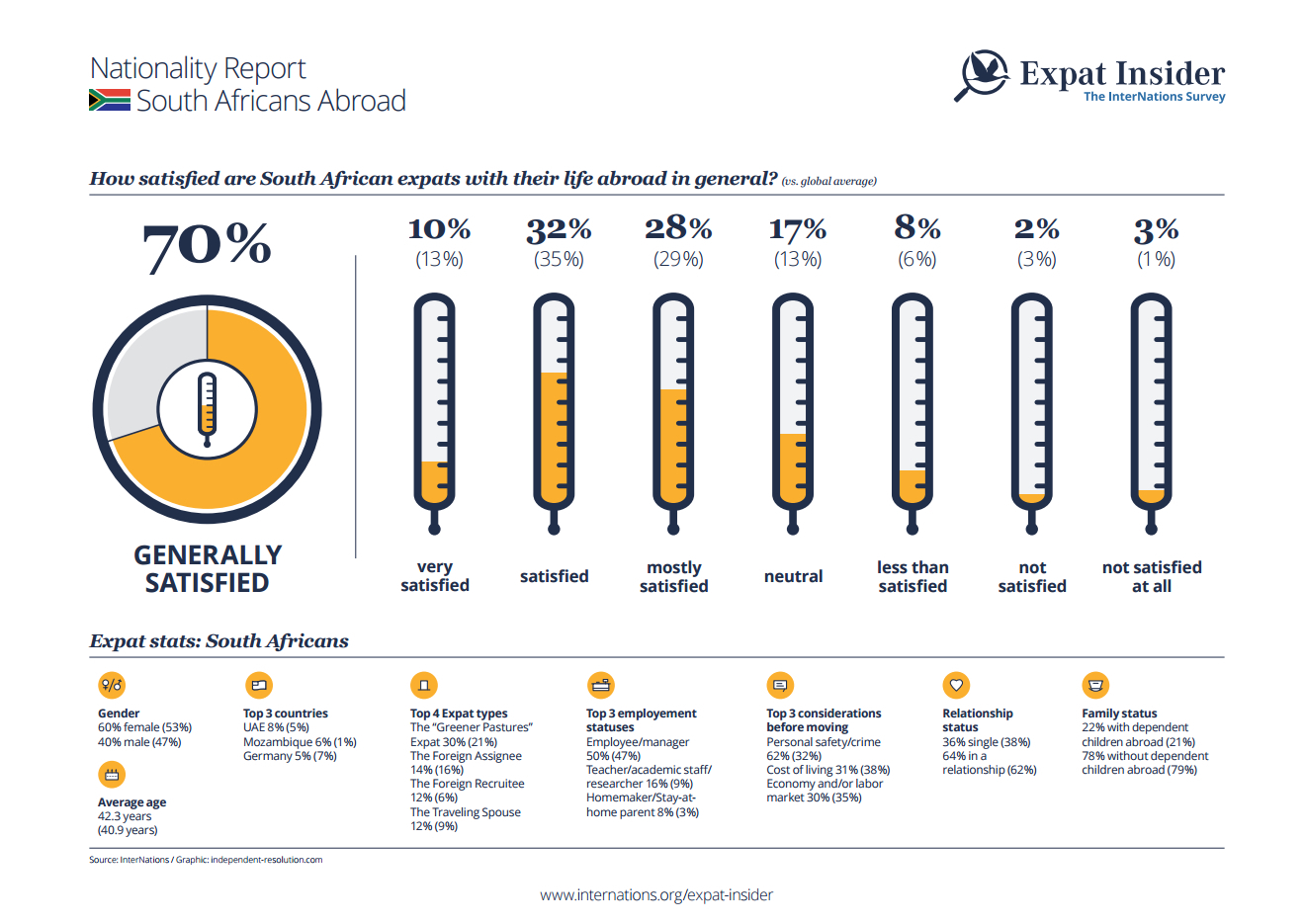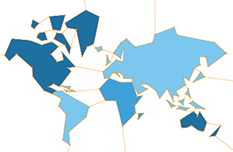South Africans Abroad in Search of Greener and Safer Pastures
Many South African respondents stay abroad for at least five years, living comfortably in predominantly English-speaking social circles and top management positions.
For 37% of the South African respondents their current stay abroad is their first, which is a relatively high figure considering 28% is the global average for expats. Perhaps they are not as seasoned as some, but South Africans do seem to hit the expat jackpot the first time around: 22% of them are planning to stay longer than five years in their current country of residence, versus 16% globally.
Expat Statistics 2015

Safety First
What are some of the pull factors for South Africans moving abroad? Aside from the usual job-related reasons, the search for adventure (28%) and a better quality of life (22%) are common reasons for moving abroad. The former is even named as the most important reason by 13% of South African survey participants.
Possibly related to the search for a better quality of life is the fact that South Africans are on average more compelled to move abroad for political, religious, or safety reasons (13% vs. 4%), with 5% indicating this as their most important reason for moving abroad compared to a mere 1% of all respondents. Fortunately, it looks as if South African expats can put their mind at ease as the perception of personal safety, as well as the health and safety of their children, in their respective country of residence is very positive: 83% and 85%, respectively, rated these factors favorably.
Straight to the Top
South Africans can take pride in their professional achievements abroad: just under one-quarter of the respondents who identify as employees or managers (24%) are in top management positions, compared to 11% worldwide! They are also overrepresented in the academic field with 16% of them working as teachers, academic staff, and researchers (global average: 9%). The fact that 63% enjoy a higher income than at home is icing on the cake.
South African respondents hold on average fewer degrees than expats worldwide, starting at the level of a Bachelor's degree. The global average for having at least a Bachelor's degree is 83% while theirs is 66%. Clearly, this does not hold back the hard-working South African expat, who spends two more hours a week at work than the average expat. Could this be the secret to their success?
The Linguistic Comfort Zone
Since South African expats come from a country with eleven official languages, it should come as no surprise that relatively many of them speak two languages (52% compared to 26% globally). Regardless, learning the local language of their destination seems to pose somewhat of a challenge: South Africans are twice as likely as the worldwide average not to speak the local language at all, and only 23% - compared to 48% on average - speak the local language fairly well or fluently. Language barriers are a problem for 31% of South Africans abroad, which is five percentage points higher than the global average.
The comfort of conversing in their mother tongue is sought out by a large cohort of the South African respondents: 11% live in a country where the local language is the same as their mother tongue, and 37% have mainly expat friends that speak the same language even if they are from different countries.
This tendency continues in the relationship spectrum of South Africans abroad: four out of seven respondents have a partner of the same nationality, compared to three out of seven globally. This desire for the familiar arguably resonates with the 36% of South African respondents who miss their personal support network very much and the 46% of South African singles who find expat life makes having a relationship difficult (worldwide average: 38%).
Further Reading
- Reverse Culture Shock - why returning home is not always easy
- Intercultural Communication - what is it, and why does it matter?
- International Marriage and Relationships - common issues and different strategies
- CIA World Factbook - South Africa



